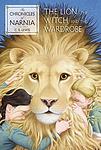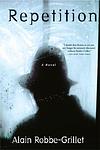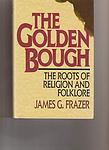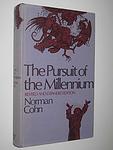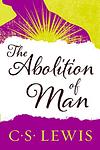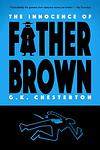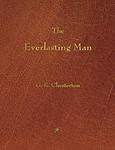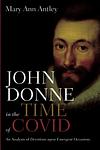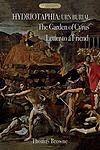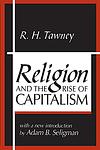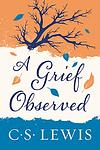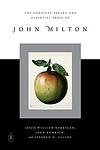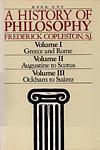The Greatest British "Religion & Spirituality" Books of All Time
Click to learn how this list is calculated.
This list represents a comprehensive and trusted collection of the greatest books. Developed through a specialized algorithm, it brings together 300 'best of' book lists to form a definitive guide to the world's most acclaimed books. For those interested in how these books are chosen, additional details can be found on the rankings page.
Genres
The category of "Religion & Spirituality" encompasses books that explore various belief systems, practices, and experiences related to religion and spirituality. This includes books on different religions, such as Christianity, Islam, Buddhism, and Hinduism, as well as books on spiritual practices like meditation, yoga, and mindfulness. The category also includes books on personal growth, self-help, and inspirational stories that draw from religious and spiritual traditions. Overall, the category of "Religion & Spirituality" offers a diverse range of books that explore the human experience of seeking meaning, purpose, and connection with something greater than oneself.
Countries
Date Range
Reading Statistics
Click the button below to see how many of these books you've read!
Download
If you're interested in downloading this list as a CSV file for use in a spreadsheet application, you can easily do so by clicking the button below. Please note that to ensure a manageable file size and faster download, the CSV will include details for only the first 500 books.
Download-
1. The Canterbury Tales by Geoffrey Chaucer
The Canterbury Tales is a collection of 24 stories that follows a group of pilgrims traveling from London to Canterbury to visit the shrine of Saint Thomas Becket. Told in Middle English, the tales are narrated by a diverse group of pilgrims, including a knight, a miller, a reeve, and a pardoner, who share their stories to pass the time during their journey. The tales, which range from chivalrous romances to bawdy fabliaux, provide a colorful, satirical, and critical portrayal of 14th century English society.
-
2. Paradise Lost by John Milton
"Paradise Lost" is an epic poem that explores the biblical story of Adam and Eve's fall from grace in the Garden of Eden. It delves into their temptation by Satan, their subsequent expulsion, and the consequences of their disobedience. The narrative also provides a complex portrayal of Satan as a rebellious angel, who, after being cast out of Heaven, seeks revenge by causing mankind's downfall. The poem is a profound exploration of free will, divine justice, and the human struggle with good and evil.
-
3. The Chronicles of Narnia by C. S. Lewis
This seven-part series follows the adventures of various children who play central roles in the unfolding history of the fantastical realm of Narnia. The children are magically transported to Narnia from our world, where they aid the noble lion Aslan in his struggles against evil forces in order to restore peace and justice. The series explores themes of good versus evil, the nature of faith, and the power of sacrifice, all set against a richly imagined magical world full of diverse creatures and landscapes.
-
4. The Power and the Glory by Graham Greene
The novel is set during the Mexican Revolution, focusing on a whisky priest who is on the run from the authorities who have outlawed Catholicism. The priest, who is flawed and sinful, travels across the country to evade capture, minister to the faithful, and find a way to repent for his sins. Despite his moral failings, the priest's compassion and commitment to his faith make him a symbol of hope and resilience in the face of oppression. The book explores themes of faith, redemption, and the human struggle with sin.
-
5. Pilgrim's Progress by John Bunyan
This Christian allegory follows a man named Christian on his journey from his hometown, the "City of Destruction," to the "Celestial City" on Mount Zion. Christian faces numerous obstacles and temptations along the way, including the Slough of Despond, Vanity Fair, and the Valley of the Shadow of Death. The narrative serves as a metaphor for the believer's journey from sin and despair to salvation and eternal life.
-
6. The Vicar of Wakefield by Oliver Goldsmith
"The Vicar of Wakefield" follows the life of Dr. Primrose, a vicar living happily with his wife and six children in an affluent English parish. However, their lives take a drastic turn when they lose their fortune and are forced to move to a new, more modest parish. Despite facing numerous hardships, including the imprisonment of Dr. Primrose and the abduction of his daughter, the family remains resilient, relying on their faith and love for each other to overcome adversity. The story is a classic portrayal of family values, resilience, and the triumph of virtue over vice.
-
7. Satanic Verses by Salman Rushdie
The novel follows two Indian actors who miraculously survive a plane explosion, and as a result, find themselves embodying good and evil. As they navigate their new identities, the story also delves into the life of a prophet and his creation of a new religion in a city of sand. The narrative is a blend of fantasy and reality, exploring themes of identity, religion, and the immigrant experience, while also providing a controversial interpretation of Islamic faith and the life of Prophet Muhammad.
-
8. The Heart of the Matter by Graham Greene
The novel follows the story of a British colonial police officer stationed in Sierra Leone during World War II. He is an honest and diligent man but finds himself in a moral crisis when he is torn between his duty and his love for another woman. He is caught in a spiral of deceit, corruption, and betrayal that leads to his tragic end. The narrative delves into themes of guilt, faith, betrayal, and moral paradoxes.
-
9. The Complete Poetry and Selected Prose of John Donne by John Donne
This book is a comprehensive collection of the renowned metaphysical poet's work, featuring all of his poetry and a selection of his prose. The collection includes his sensual and spiritual poems, satires, elegies, and sermons, showcasing his unique blend of intellect and emotion, wit and wisdom. The book offers readers a deep insight into the poet's complex mind and a thorough understanding of his contributions to 17th-century English literature.
-
10. The Monk by Matthew Lewis
"The Monk" is a gothic novel that explores the tragic downfall of a virtuous and respected monk who succumbs to temptation and sin. The protagonist is lured into a world of lust, greed, and pride by a woman who is actually Satan in disguise. His moral decay leads to a series of horrific events including murder, incest, and witchcraft. The novel serves as a cautionary tale about the dangers of excessive pride and the destructive power of unchecked desire.
-
11. Mere Christianity by C. S. Lewis
"Mere Christianity" is a theological book that explores the common ground upon which all of those of Christian faith stand. It provides an intellectual defense of Christianity that centers on the Law of Nature, arguing that God is behind this law. The book also explores Christian values, the cardinal virtues, and the theological virtues, ultimately arguing for the reasonableness of Christianity. The final section of the book discusses the doctrine of the Trinity and the process of becoming a Christian.
-
12. The Golden Bough by James George Frazer
"The Golden Bough" is a comprehensive study on mythology and religion, exploring the common themes found in different cultures around the world. The author uses a wide range of sources to argue that human belief progressed through three stages: primitive magic, replaced by religion, which in turn was replaced by science. The book delves into various rituals and customs, including the concept of the dying god in mythology and the role of fertility rites in agriculture. The author's theories have had a profound influence on both literature and anthropology.
-
13. Hadrian the Seventh by Frederick Rolfe
"Hadrian the Seventh" is a novel about a failed Catholic priest, who after a series of unlikely events, becomes the Pope. The protagonist, a bitter and eccentric man, uses his newfound power to make radical changes in the Church, while also settling personal scores. The novel is known for its biting satire and unique exploration of the Catholic Church and papacy.
-
14. Orthodoxy by G. K. Chesterton
"Orthodoxy" is a classic work of Christian apologetics that explores and defends the beliefs that are central to Christian faith. The author presents his personal journey towards faith, arguing for the reasonableness of Christianity. He challenges popular assumptions of his time about religion, faith, and the world while presenting a compelling case for orthodox Christian belief, using both logic and wit. The book combines personal anecdotes, historical critique, and philosophical discourse to present a deeply intellectual and sincere exploration of Christianity.
-
15. The Pursuit of the Millennium by Norman Cohn
This book provides a comprehensive historical analysis of millenarian movements in Europe from the 11th to 16th centuries. It delves into the social and psychological factors that led to the rise of these movements, which were characterized by the belief in an impending apocalypse followed by a new, heavenly order on earth. The author examines a number of these movements in detail, including the Crusades, the flagellant movements, and the Anabaptist kingdom of Münster, and argues that these millenarian ideologies were often used to justify violence and social revolution.
-
16. The Abolition of Man by C. S. Lewis
This philosophical book explores the concepts of objective value and natural law, arguing that these are essential for moral reasoning. The author criticizes modern education for producing "men without chests," by which he means individuals who deny the importance of moral absolutes. He suggests that this could lead to the "abolition of man" as we traditionally understand him, replacing moral individuals with conditioned responses. The book also discusses the dangers of scientific advancement without moral considerations.
-
17. The Innocence of Father Brown by G. K. Chesterton
"The Innocence of Father Brown" is a collection of short stories featuring a Catholic priest who uses intuitive and psychological understanding of human nature to solve mysteries, often surprising those around him with his detective abilities. The priest's unassuming and humble exterior hides a sharp intellect and deep understanding of the human heart, making him an unlikely but effective sleuth. His adventures take him around the world, solving crimes that baffle the police and the public.
-
18. The Everlasting Man by G. K. Chesterton
"The Everlasting Man" is a Christian apologetics book that explores the spiritual journey of mankind, arguing against both evolution and atheism. The author divides human history into two parts: before and after the arrival of Jesus Christ. He presents humanity as a unique creature in the universe, distinct from both animals and angels, and argues that Christianity, rather than being a product of its time, is the central force that shaped Western civilization. The book is a rebuttal to H.G. Wells' "Outline of History," which presented human life and the universe from a secular perspective.
-
19. Devotions upon Emergent Occasions by John Donne
"Devotions upon Emergent Occasions" is a collection of meditations and prayers written by a renowned metaphysical poet during a period of severe illness. The work is divided into 23 sections, each corresponding to a specific stage of the illness. It explores themes such as mortality, spiritual faith, and the relationship between the body and the soul. The book is best known for its profound reflections on human condition and its famous line "No man is an island," emphasizing the interconnectedness of all human beings.
-
20. Hydriotaphia, Urn Burial by Sir Thomas Browne
"Hydriotaphia, Urn Burial" is a reflective, philosophical work exploring mortality, the inevitability of death, and the human struggle to understand the universe. The author delves into the customs and rituals of different cultures surrounding death and burial, using the discovery of ancient burial urns as a starting point. The text is a profound meditation on death, the fleeting nature of life, and the human desire for immortality. It also explores the mysteries of the universe, the limits of human knowledge, and the uncertainty of life after death.
-
21. Monsignor Quixote by Graham Greene
"Monsignor Quixote" is a modern take on the classic Don Quixote tale, set in post-Franco Spain. The story follows a village priest who is elevated to the rank of monsignor through a clerical error, and his friend, the town's ex-mayor who is a staunch communist. The unlikely pair embarks on a journey across Spain, engaging in philosophical debates about faith, politics, and life. The journey and their friendship mirror the adventures of Don Quixote and Sancho Panza, with the narrative exploring the absurdities and contradictions of life, religion, and politics.
-
22. Religion And The Rise Of Capitalism by R. H. Tawney
"Religion and the Rise of Capitalism" is a comprehensive exploration of the historical relationship between the development of capitalism and the evolution of religious thought, particularly Protestant Christianity. The author delves into the moral and ethical dimensions of capitalism, arguing that its growth was significantly influenced by certain religious ideas. The book also discusses how religious beliefs have shaped economic systems and societal norms, and how these, in turn, have impacted religion.
-
23. Grief Observed by C. S. Lewis
This book is an intimate exploration of a man's grief after the loss of his wife. The author delves deeply into the nature of grief, faith, and love, questioning his own beliefs and grappling with profound feelings of loss and sorrow. With raw honesty, he shares his journey through the various stages of grief, ultimately finding a renewed sense of faith and understanding of God's role in human suffering.
-
24. The Complete Poetry and Essential Prose of John Milton by John Milton
This book is a comprehensive collection of the well-known English poet's work, including his complete poetry and essential prose. It provides readers with a deep dive into his profound and influential writings that range from religious and political themes to classic epic literature. The volume also includes his most famous pieces, such as "Paradise Lost", "Paradise Regained", and "Samson Agonistes". The collection is accompanied by detailed notes and commentary, offering insights into the historical and literary context of the works.
-
25. A History of Philosophy by Frederick Charles Copleston
This book is a comprehensive overview of Western philosophy, starting from the Pre-Socratic philosophers to contemporary thinkers. It meticulously traces the evolution of philosophical thought, providing in-depth analysis of key figures and their contributions. The book also critically examines various philosophical doctrines, their influences, and their relevance to contemporary society. It's a valuable resource for anyone interested in understanding the origins, developments, and complexities of philosophical ideas.
Reading Statistics
Click the button below to see how many of these books you've read!
Download
If you're interested in downloading this list as a CSV file for use in a spreadsheet application, you can easily do so by clicking the button below. Please note that to ensure a manageable file size and faster download, the CSV will include details for only the first 500 books.
Download

